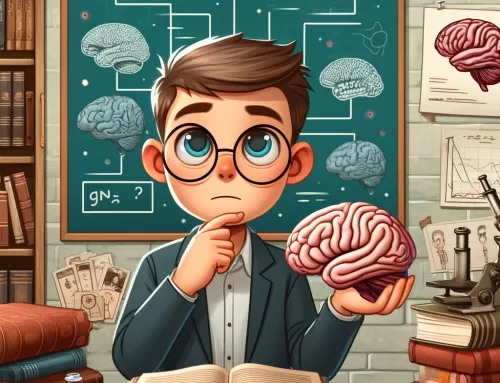 The epidemic of loneliness, exclusion, and the breakdown of social relations in modern society are the leading causes of depression, impaired mental health, and increased suicide rates. This breakdown contributes to a crisis of mistrust, meanness, and heightened hostility. Political turmoil and social polarization worsen these issues.
The epidemic of loneliness, exclusion, and the breakdown of social relations in modern society are the leading causes of depression, impaired mental health, and increased suicide rates. This breakdown contributes to a crisis of mistrust, meanness, and heightened hostility. Political turmoil and social polarization worsen these issues.
Focusing on kindness, generosity, and respect can overcome this widespread crisis.
Poppy, the vibrant and cheerful protagonist of the “Trolls” movies, is an exemplary character when it comes to showcasing kindness, generosity, and respect. Poppy’s character teaches us valuable lessons about embracing diversity, showing empathy, and leading with a kind heart.
Through her adventures, Poppy demonstrates that kindness, generosity, and respect can overcome fear, prejudice, and misunderstanding, promoting a message of unity and friendship. Here’s how Poppy embodies these virtues:
- Kindness: Poppy is innately kind and goes out of her way to make others feel included and happy. Her approach to every Troll and creature she encounters is with an open heart and a willingness to help. Whether it’s offering a hug, a song, or just a listening ear, Poppy’s actions are often driven by her desire to spread happiness and positivity. For example, she embarks on a mission to save her friends from the Bergens, despite the dangers, showcasing her selfless nature and kindness towards others.
- Generosity: Poppy is generous not only with material things but also with her time and energy. She is always ready to share whatever she has, be it her optimistic spirit, her music, or her colorful scrapbooks. Her willingness to give without expecting anything in return is a hallmark of her generous nature. This is evident when she decides to bring the Trolls and the Bergens together, sharing her belief in happiness and friendship.
- Respect: Respect for others, regardless of their differences, is another of Poppy’s strong suits. She respects the unique traits of each Troll in her village, celebrating their individuality and encouraging them to be true to themselves. Moreover, her journey teaches her to respect her perceived enemies, the Bergens, understanding that they, too, are capable of happiness and kindness. Her respect towards everyone’s feelings and her efforts to understand and empathize with them, including Bridget and Gristle, underline her leadership and diplomacy.
Recognizing and valuing each person, displaying compassion and support
As the Irish playwright George Bernard Shaw once wrote: “The worst sin against our fellow creatures is not to hate them, but to be indifferent to them: that is the essence of inhumanity.” In other words, they say that the worst thing we can do to a person is to treat them as if they don’t matter or don’t exist. Making each person feel seen and heard is the most precious gift you can give them. If we are being honest, perhaps some of the most cruel acts in humanity have been caused by individuals who were overlooked and unheard.
Being a person who knows how to recognize the uniqueness and authentic gifts that each individual possesses within themselves can do wonders – enabling them to feel the courage and confidence to believe in their talents and seize the opportunity to maximize their potential in reaching their goals. We should strive to recognize in others when they need such support and when it is the right moment to approach them with warmth and affection, especially when they feel disconnected and misunderstood. And it’s not just about being a kind and good person; it’s the feeling of what you’ve done that has made someone feel better and filled someone’s life with a little more cheerfulness and hope. In a world where this is to be lamented, being such a person is true preciousness.
First and foremost, the majority of us humans make decisions based on how those around us support us. No matter how satisfied and confident we are with ourselves alone, support is always welcomed, and we should feel once again that we are on the right path. Both in the private and professional aspects of life, when we offer support and hope to someone, we contribute to helping those individuals better handle crisis situations and think more soberly, therefore enabling them to make rational and correct decisions. People should also strive to cultivate an openness and embrace racial and ethnic differences.
Unfortunately, in these experiences, a large part of society faces the harsh reality of not feeling accepted in their environment and being viewed with a dose of contempt. Being a remedy for fragile social development doesn’t mean attempting to address global issues; instead, it involves starting at the individual level. Let each of us strive to be someone who acknowledges and sympathizes with others, thereby serving as a remedy for societal ailments.
The significance of self-awareness and recognizing diversity in personality types
Five personality traits—extroversion, conscientiousness, neuroticism, agreeableness, and openness—significantly influence our daily lives, shaping how we handle challenges, make decisions, and respond in various situations. It is crucial to be aware of all they represent and that each of those personality types needs to be understood and valued to live in a healthy and functioning society.
The role of parents and close individuals such as teachers, mentors, and friends in shaping one’s personality from early childhood are paramount. At the core of every individual, family, school, community organization, or society, there should prevail one primary skill: the ability to perceive others and ensure they feel acknowledged deeply. This involves genuinely understanding another person beyond mere acknowledgment to making them feel valued, heard, and understood.
Genuine connections require vulnerability and openness
There is one skill at the center of any healthy family, company, classroom, community, or nation: the ability to see each other, to know other people, to make them feel valued, heard, and understood. We must strive to become better and be mindful of how we approach all the individuals we encounter in our lives. Good character is developed through skillful social interactions and a proactive effort to be a good listener.




